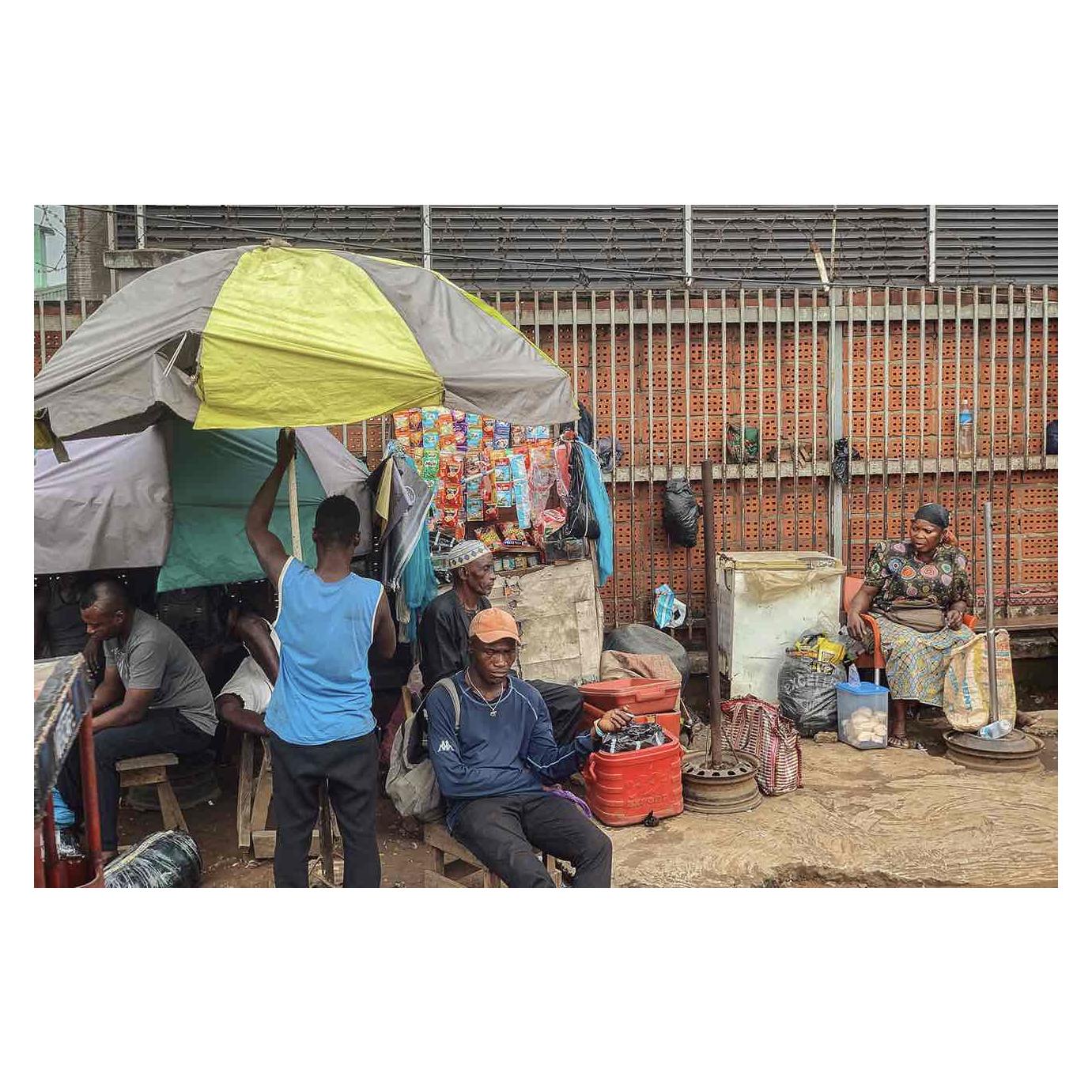Samuel Okocha
Freelance Journalist . Photographer . Audio + Visual Storyteller | Specialized in mobile, creative and non-fiction storytelling
LagosLivesOn: A journalist's journey through street photography
Look at this photo. A man sits in front of a makeshift shop on a busy road, smoking a cigarette and holding a bag. He seems calm and detached, as if in a different world from the traffic and hustle behind him. What is he thinking? What is his story?
These are the questions that drive me as a street photographer and a journalist. And it's also personal. That's because street photography reveals my soul. Sometimes, the subject, like the one in this image, reflects my own challenges as a journalist. To ignore the distractions, such as keeping up with the Joneses, I must trust myself, set my own standards and work for impact, not applause, as a freelance multimedia journalist. Street photography is my constant therapy. I will share more on this in subsequent posts as part of a seven post series on LagosLivesOn.
Lagos is the city where I was born and raised, where I started my career as a multimedia journalist. It is a vibrant, chaotic and diverse metropolis. It has everything from skyscrapers to slums, from luxury cars to okadas, from modern malls to traditional markets. It is a city that never sleeps, where people are always on the move, hustling, surviving, dreaming.
But Lagos is not the only city in Nigeria. There are many other places to explore, to learn from, to tell stories about. That is why I embraced an opportunity that allowed me move to Abuja, the capital city, where I live and work mostly now. Abuja is different from Lagos in many ways. It is more planned, more organized, and more peaceful. But it also has its own challenges, its own opportunities, and its own stories.
Moving to Abuja was a big change for me, both personally and professionally. I had to adapt to a new environment, a new culture, a new network. I also had to find new ways to express myself as a journalist and a creative. That is why I started this series, LagosLives On, to reconnect with my roots and to share my passion for street photography.
Street photography is more than just taking pictures. It's a way of seeing, of listening, of learning, and of telling stories. These stories include those of people, places, and yourself. It's a way of finding my voice as a journalist and a human being.
One of the tools that helps me in my street photography is my iPhone, which serves as a camera in my pocket. I use my iPhone to capture the spontaneous moments, the candid expressions, the hidden details, and the unexpected angles that make street photography so fascinating and rewarding.
I also use my iPhone to edit my images, to crop, to adjust, and to enhance. And I use my iPhone to share my work online, to reach a wider audience, to get feedback, and to connect with other street photographers.
In this series, I will show you some of my best street photos and the stories behind them. It's 1/7. Onward.
LagosLivesOn: A journalist's journey through street photography
2,160

